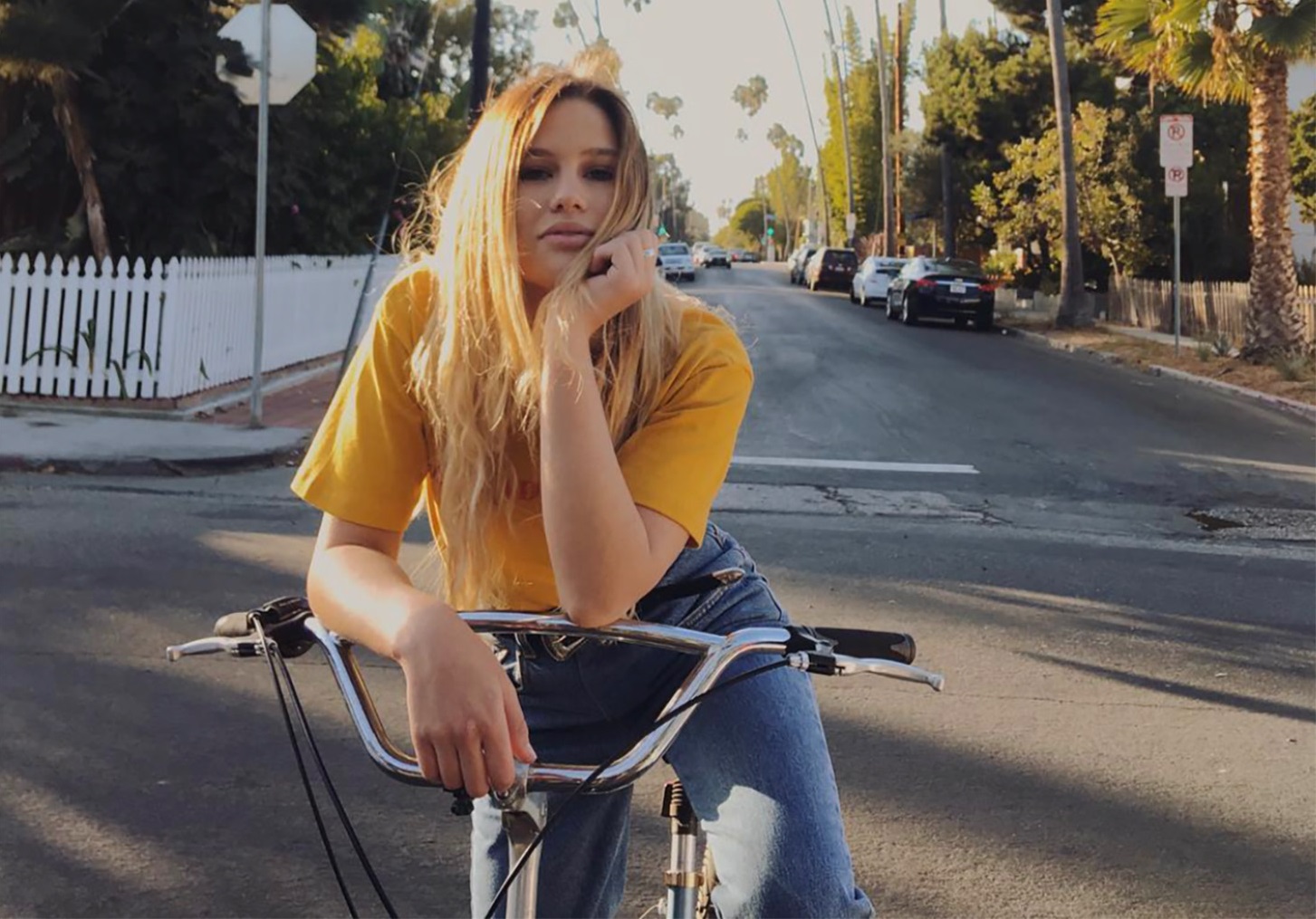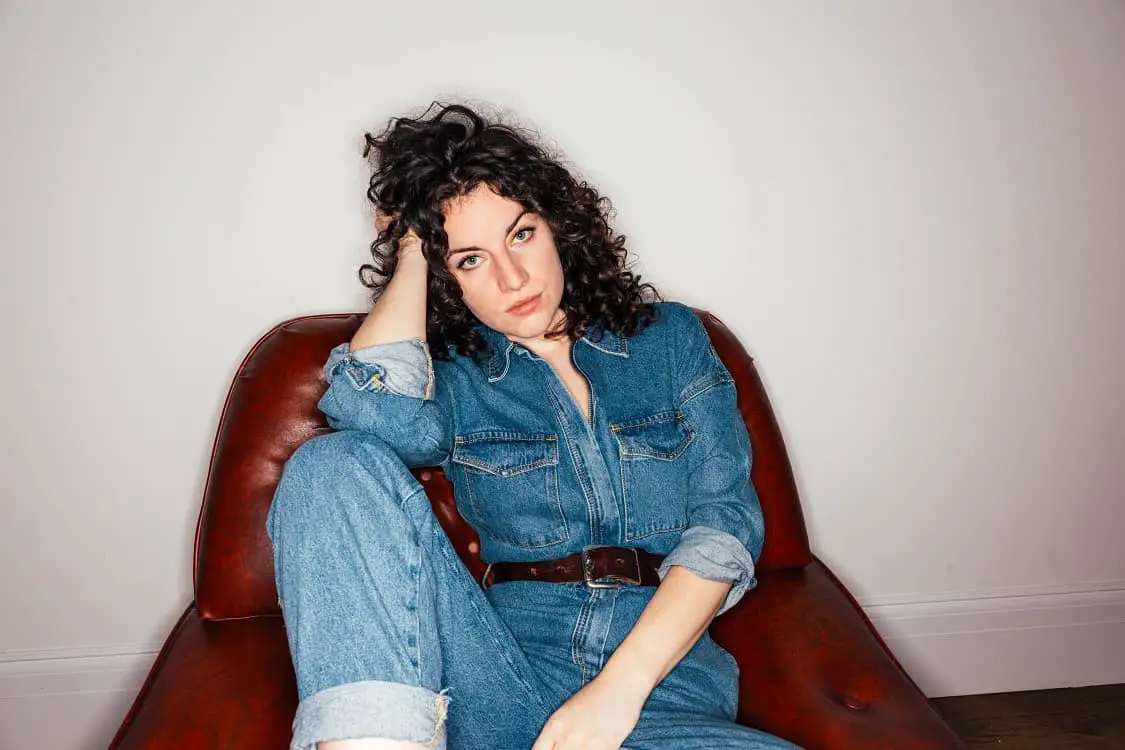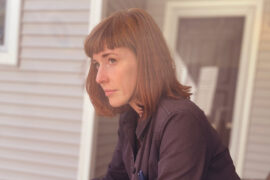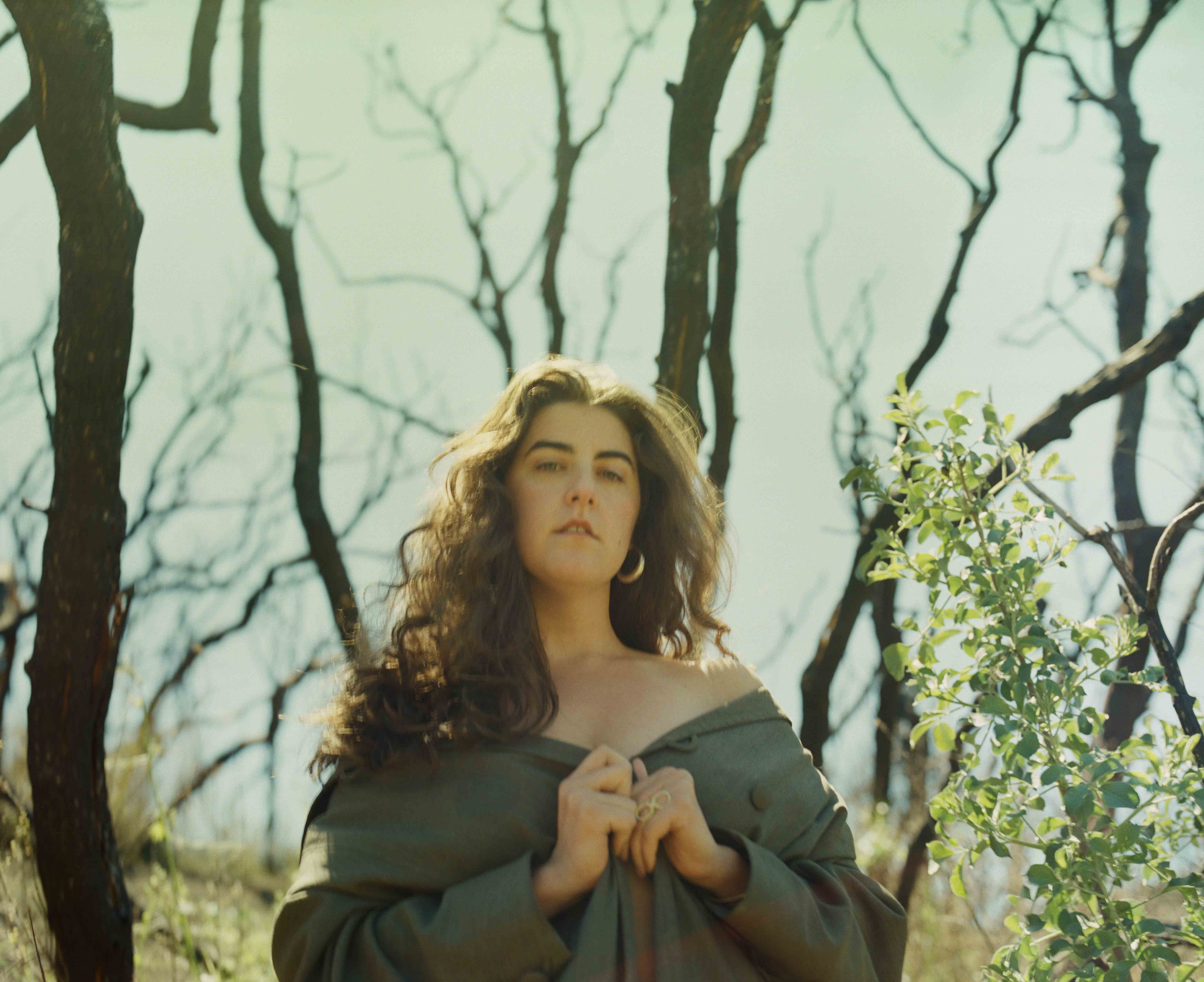Atwood Magazine speaks to Becca Stevens about her new album ‘Wonderbloom,’ poetry in music, and being unable to stay in one lane for very long.
— —
“No mud, no lotus” would remind me that without the dark and heavy stuff, you can’t get to the beautiful flower.
Singer/songwriter and multi-instrumentalist Becca Stevens belongs to a class of musicians that is slightly different from most. She’s a conservatory educated musician who doesn’t keep herself in a box: she has performed jazz, folk, classical, and rock, and has seen collaborations with Snarky Puppy, David Crosby, and more.

Her last album, Regina, explored the concept of queens, a topic made strange and glittering under her auspicious lyrical ability. It also fused together her unique blend of styles more prominently than ever with production from Snarky Puppy’s Michael League and exciting guest appearances. The album saw her take on a new persona, the entity of Regina herself.
Wonderbloom, then, is the newest manifestation of Stevens’ magical muse, the fully formed flower. Her poppiest record to date, Wonderbloom is expansive in its moods and sounds. Released March 20, 2020, via GroundUP Music, this collection of songs sees Stevens at a new level of vulnerability and even anger: many of these songs discuss power, redemption, pain, and outrage. We hear Stevens exult in the funky, Prince-infused “Good Stuff,” and hear her familiar, soft croon on “Halfway.”
Wonderbloom is a beautiful record from a musician seemingly at the height of her powers; however, she probably has even higher to go, and Atwood Magazine spoke with Stevens about the album’s inception!
Listen: ‘Wonderbloom’ – Becca Stevens
A CONVERSATION WITH BECCA STEVENS
Atwood Magazine: How are you doing in quarantine?
Becca Stevens: Oh man, it’s weird, weird times. There’s a lot of stuff to be stressed out about but also a lot to be really grateful for. It’s so sad and so frustrating right when I put out a record, but it’s also weirdly kind of relieving. All of a sudden I have nothing to do, and I can focus on what I want my life to look like moving forward, which is a gift in a way.
This album feels so different from Regina and even further from Perfect Animal.
Becca Stevens: I’m always inclined to change; it’s not a plan per se, but more like my nature. Even since I was a kid, when I do something I do it with my whole self slowly and thoroughly and obsessively. By the time I finish doing something, I often am craving the total opposite. It’s sort of like when you end a relationship — you often look for someone that has the opposite characteristics of the relationship you’re coming out of.
When I graduated jazz school, I was craving indie rock, and when I graduated classical guitar in high school at the conservatory where I studied, I was craving jazz. So it’s funny finishing Wonderbloom, which is the most produced thing I’ve ever done, and kind of the poppiest thing I’ve ever done — unintentionally, by the way. I was planning to make something very intimate and soft.

Regina had a very specific concept behind it, being all about queens — does this one as well?
Becca Stevens: I did not have a concept. I was searching desperately for one, because I found kind of on a promotional standpoint, that it made talking about Regina so much easier in interviews. People really latch on to themes, especially in moments like this where I’m talking to you and I can easily explain something.
With Wonderbloom, I felt like the more that I tried to lock it into a theme, the more my muse, or the energy that delivers the inspiration, would run away and pull me into the unknown, and that there was something about this record that I was supposed to experience learning to trust and learning the joy of relinquishing control, a little bit.
I think my fear was that if I relinquish control and trust the unknown and collaborate more and share the writing experience and these kinds of things, that I would lose my voice. And what I found from trusting was that my voice just became stronger, and stretched in a way.
During the process of writing this music, I was just following wherever the inspiration was. Looking back, I now see that the themes were there all along, but I just couldn’t really see them in the moment. In the music room where I did a lot of the writing, there were these two pictures on my Wurlitzer. One was calligraphy of Thích Nhất Hạnh’s, a Buddhist monk — I went to hear him speak once and I bought this calligraphy that says “no mud, no lotus.”
And next to that is this portrait of my grandfather who died right before I was born. At the very end of his life, he went to the doctor and received a cancer diagnosis. At that time the doctor said, “You should probably get your portrait done for your family because the cancer is going to start taking a toll soon and you won’t look like this much longer,” and so he went and had these portraits done. In the photo, his eyes are just beaming with joy and light and unconditional love, and his smile just feels very light.
There were a lot of times when I was feeling the pressure to write music or feeling like my internal critical voice was so strong, or that I wasn’t enjoying myself, and I would look at these two things and look at my grandfather and think, “Well, if he could smile like that knowing what he knew, then I can definitely get over whatever I’m going through and just write a song.”
The “no mud, no lotus” would remind me that without the dark and heavy stuff, you can’t get to the beautiful flower. All these songs, in some way or another, come from taking dark, difficult, heavy stuff, and instead of brooding on it and feeling bad, embracing it, and holding it up to the light as if you’re looking through a kaleidoscope and watching it bloom and flicker – seeing that this dark stuff is also beautiful stuff, and will bloom like a flower if given time and patience.
Sometimes if you’re starting out with a theme and trying to fit stuff together like a puzzle, it can almost be easier for people to pick it apart later. But if it comes together organically on its own, it might wind up even being more meaningful.
Becca Stevens: Even with Regina, at the very beginning I thought, “Oh, this is a project about queens.” But by the end of the last day in the studio, Regina had become an entity that I then would call on in writing and since have called on when writing, and also would call on before shows to embody this sense of strength and power. In the years since then, I have absorbed the things that I was practicing.
There’s no way I could have known that that’s what would happen when I came up with the Regina theme and when you stay open to letting things evolve and change like you said, you end up with a much more human and organic relationship to the art itself.
'Heather's Letters to Her Mother' feels very overtly political, and on 'You Didn't Know,' there's that line, 'We turn a blind eye to evil / the power's louder than the pain.' Can you talk about those concepts and those songs?
Becca Stevens: Originally the title was “You Didn’t Know” and then in parentheses, (#muteRKelly), which was the slogan of the documentary [Surviving R. Kelly] that inspired the song. I decided that in the effort to do what I’m kind of saying in the song, it just felt weird to put his name in the title.
I felt like I was just drawing more attention to him, and I would rather the song be for everyone that has been through an experience like these women in the documentary. I watched it and it was one of those things where sometimes you write a song because you are assigned to, and this was a song that fucking attacked me. It was like I was cornered and could do nothing else but write that song.
Both in that song and also in “Heather’s Letters to Her Mother,” the biggest challenge in writing them was making sure that they weren’t too political, but were also still embracing my view and embracing the purpose of the song. The idea of writing a song that had to do with that event, which was the peaceful protest against the Unite the Right rally in Charlottesville, Virginia, was David Crosby’s idea.
We were on a tour bus and he kept bringing it up and I said, “I don’t know, man.” I don’t usually do political stuff in my writing. I’m better at writing about feelings and stuff [laughs].
But he kept bringing it up, and I know from working and writing with David that his ideas for songs are not to be taken lightly. He kind of writes like a cinematographer and he has these really strong, very clear visions of the scene that a song takes place in before the song even comes, which has really inspired me.
So I took that challenge home and I spent a week or two just sitting with it and researching everything that I could read about Heather Heyer’s life. I also read a lot about the guy who was driving the car. But the more that I was incorporating her name or his name or anything that was overtly about the moment of the attack, the more I felt like the universe would just be shaking its head.
Finally, I thought, “What can I do that I do totally feel comfortable with?” And that was when I came up with the idea of having the song be from Heather’s perspective in these letters to her mom. That felt like it was focused more on hope and inspiring others to come from a place of love rather than hate.
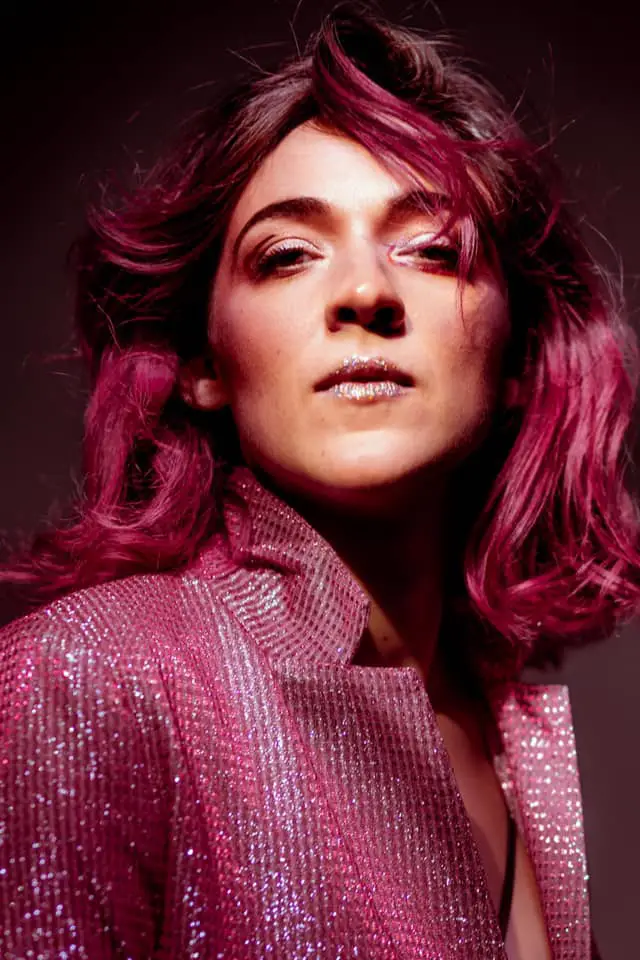
What song is most meaningful to you on this album and why?
Becca Stevens: I think “True Minds,” which is funny because when I was writing it I didn’t think it was gonna end up on the record. That’s a setting that I did of Shakespeare’s Sonnet 116. And the story behind that one was that there’s a drummer and producer, Jochen Rueckert, and he was making this record where he’d been reaching out to vocalists and just asking, “Can I chop up your voice and turn a melody that you’re singing into a drum and bass thing?“
So I just did a setting of the text of the Shakespeare sonnet and he had no idea what meter I was in, where the click was, what the harmony was, nothing. I sent him the melody and then I did my version and thought, “This is probably not going to end up on my record because it’s really weird and it doesn’t really fit in with anything in the world ever.”
But it ended up being my favorite track on the track on the record because I love stuff that’s hard to categorize. I like it when so many things can exist effectively within one song because it gives my imagination so much space to run around in. If there’s a song I want to just put on and thrash around to, it’s that one.
I’ve always found your writing to be very literary. Aside from Shakespeare, are there authors of prose or poetry you turn to for inspiration?
Becca Stevens: There’s a poet named Jane Tyson Clement. I’ve set five of her poems [to music], actually. The first one that I did was sort of a hybrid of two of her poems and some of my own lyrics in a song called “Tillery” [on Perfect Animal]. I had a friend who passed away and I had made this promise to myself the day that she died that I was going to write a song to honor her life and it took me forever to get it done.
And it wasn’t until I opened a book that my dad had gotten me for Christmas the year before that I found these poems. I can’t express how crazy it was to find these poems because they fit the number of syllables that I looked for, the theme, and it was the first page that I opened up to and they were side by side. I didn’t really know anything about her, I just sort of blindly reached out to her company and asked if I could hack up these two poems and use both of them in a song, along with my own text.
They said “Yep, do whatever you want and please use as much of her poetry as you want.” It wasn’t until about a year later that her granddaughter came to one of my shows. I eventually got to know her family a little bit better and found out that at the end of Jane’s life she was in a Bruderhof community, [which is] sort of like an Amish Christian community where everybody lives off the earth.
Then they reached out to me said, “Hey, do you want to do a collaboration where you set a few more of her poems, and then also write the foreword and commentary of a book of her poems?” It’s a pretty crazy story, and the story itself lasted for around 10 years. The song “Response to Criticism” [from Wonderbloom] is a setting from that collaboration, as well
Watch: “Feels Like This” – Becca Stevens
You mentioned that this album was where you really opened yourself up to collaboration, but you've been collaborating in so many different contexts for so long. You work with Jacob Collier, David Crosby, and I know you've done some jazz with Ambrose Akinmusire. Where do you draw the lines for your own music once you've had all these experiences with other people, or do you?
Becca Stevens: If you’d asked me five years ago I think I would have said, “I only take gigs with some formation of my band,” which at that time was four people, and it was always the same four people and if they were not available, then I would play solo. That was important to me at that time.
But after I did the Snarky Puppy Family Dinner Vol. 2, I met Jacob [Collier], Laura Mvula, David Crosby, Louis and Genevieve from Knower, and all these people in the same frickin day. And when I was putting together everything for Regina, I was being encouraged by the label that I was working with at that time to go outside my comfort zone and use more special guests.
Originally, I said, “I don’t know, that kind of goes against my whole thing, and I’m really committed to this [album].” But then, I think it was a conversation that was like, “But if you could, who would it be?” Then once I started to dream about that I thought, “Ooh, the freedom to do that does actually sound kind of nice.” I started to imagine myself writing for people who I actually like and love, first and foremost, and then it started to appeal to me a little bit more.
Once I broke down the barrier of thinking of myself as Becca Stevens Band — I’m in this box, this is what I do — I thought, “Maybe I’ll do this again sometime and on Wonderbloom.” It was never my intention to have a bunch of collaborators, not to mention 40 of them on Wonderbloom, but it just happened so organically and everybody who did it was down to do it. Nobody was like, “Well, I’m going to charge you a million dollars.”
They said, “I would love to be a part of it. I’ll mail you something from my home studio,” or “I happen to be at LaGuardia for an overnight layover. I’ll just pop over with my suitcase.” Miraculous stuff just worked out for us.
What’s the first thing you’re going to do when quarantine is over?
Becca Stevens: Hug my friends.
— —

Connect to Becca Stevens on
Facebook, Twitter, Instagram
Discover new music on Atwood Magazine
? © David Goddard
:: Stream Becca Stevens ::



